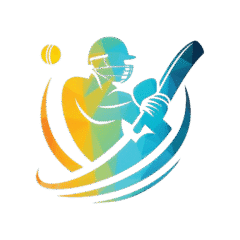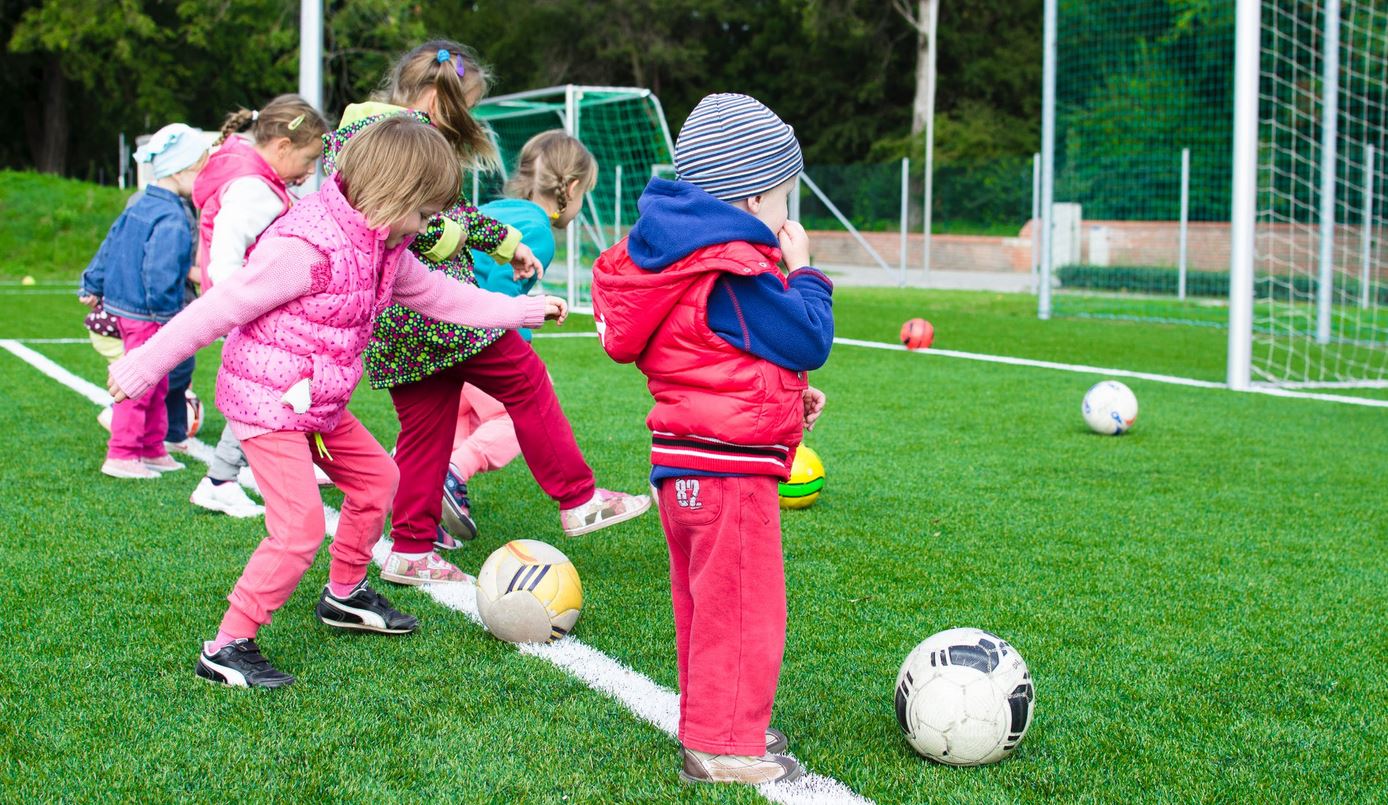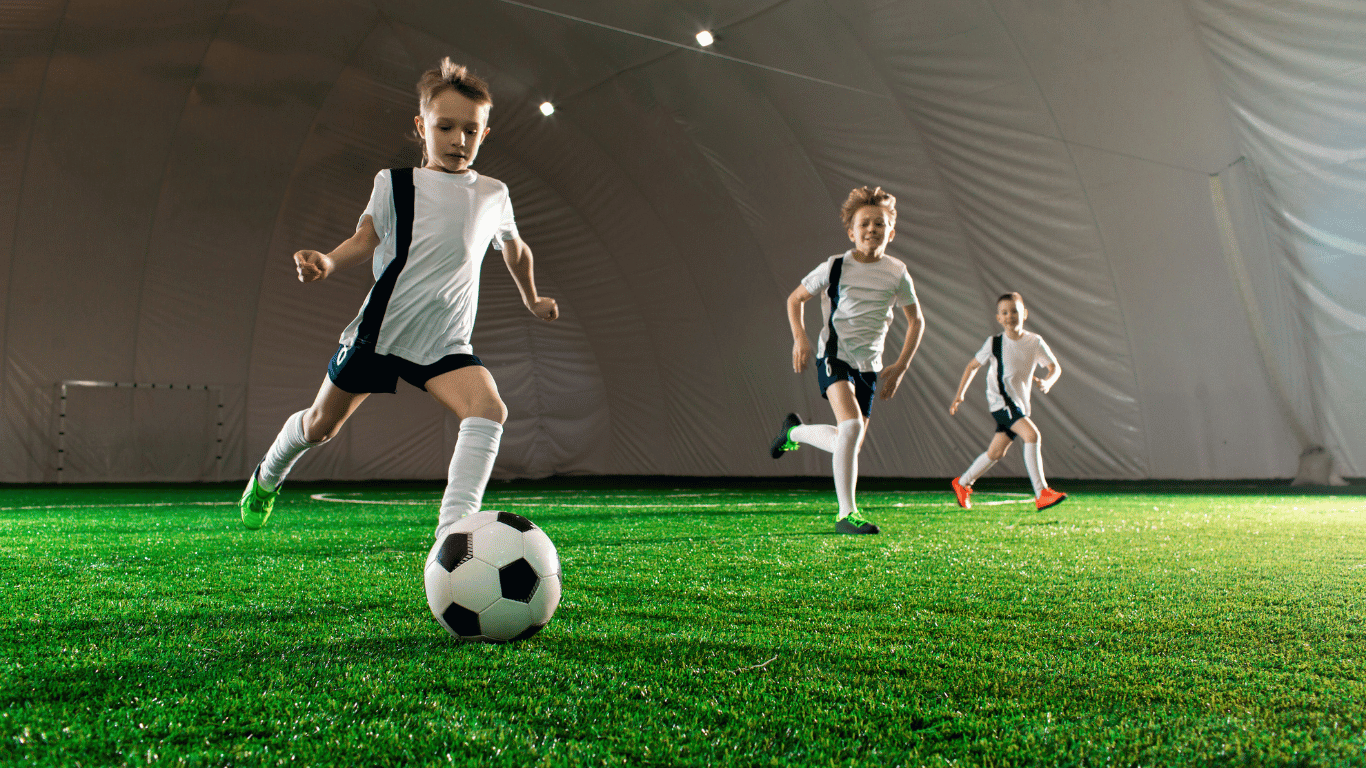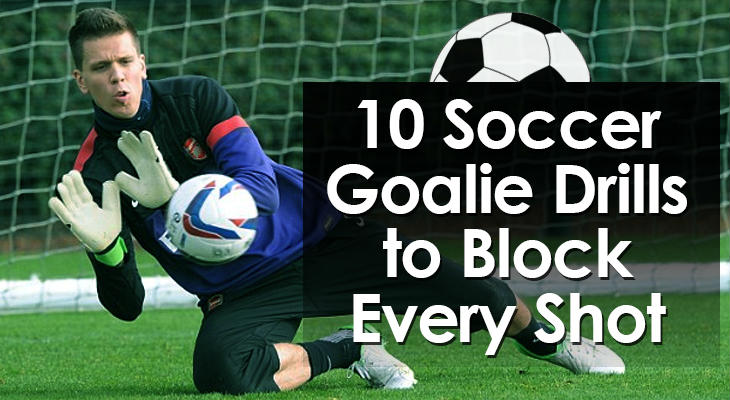12 Soccer Ball Control and Footwork Drills (2024 Update)
Want to improve your touch, boost your balance, and become a more confident player on the ball? Whether you’re just starting out or looking to sharpen your skills, working on your ball control and footwork can completely change the way you play.
These 12 updated ball control and footwork drills for 2024 are designed to help you move smoother, react faster, and handle pressure with ease. You can do most of them solo or with a partner, and they don’t require a ton of space or equipment—just a ball, some cones (or anything to mark space), and your determination to get better.
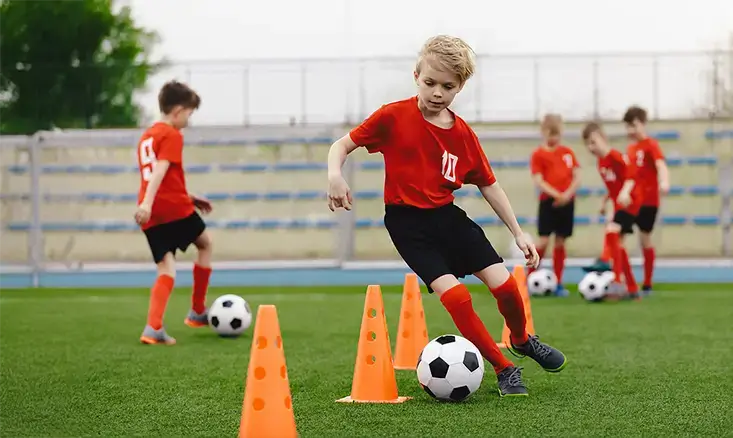
Why Ball Control and Footwork Matter
Before we jump into the drills, let’s talk about why these skills are non-negotiable for any serious soccer player:
- Ball control helps you keep possession, stay composed under pressure, and move the ball exactly where you want it.
- Quick footwork allows you to turn, dodge, and react instantly to defenders or unexpected changes in the game.
- Together, these skills give you a serious edge, whether you’re a striker trying to beat a defender or a midfielder keeping control in tight spaces.
12 Must-Try Soccer Ball Control and Footwork Drills
Here are 12 effective drills to take your footwork and touch to the next level. Try each for 30–60 seconds per rep, rest briefly, and repeat for 3–5 rounds.
1. Toe Taps
What it improves: Foot coordination, balance, and touch
Stand behind the ball and alternate tapping the top of it with the soles of your feet. Keep the movement light and quick. Focus on staying balanced and not letting the ball move too much.
Pro tip: Don’t stare at your feet. Keep your head up and use your peripheral vision—just like in a real match.
2. Inside-Outside Touches
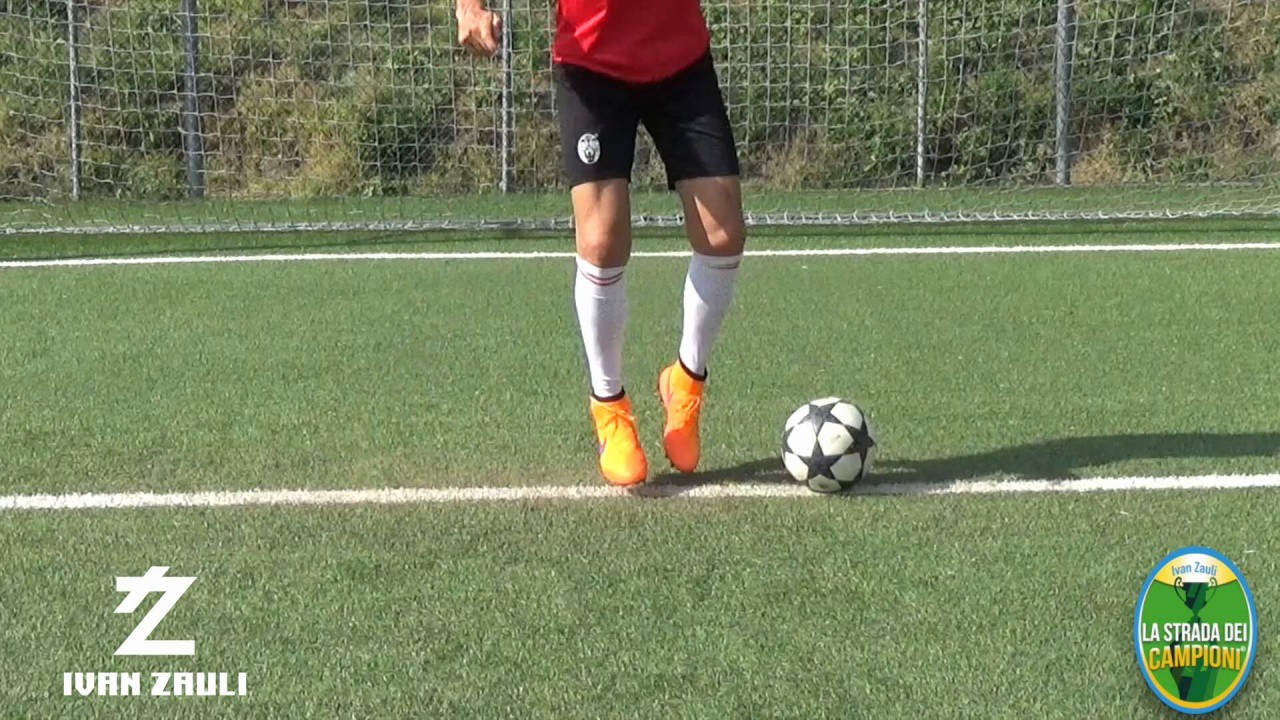
What it improves: Ball control, agility, and rhythm
Start by tapping the ball back and forth between the inside and outside of the same foot. Switch feet after 20–30 seconds. This helps train tight ball control while moving laterally.
Pro tip: Start slow, then increase speed as you get more comfortable. Try to keep the ball within a 1-foot radius.
3. Foundations (Bell Taps)
What it improves: Control and rhythm
Use the inside of both feet to lightly tap the ball back and forth. This simulates the kind of quick touches needed in tight situations.
Pro tip: Stay light on your toes. Don’t let your heels touch the ground while doing this drill.
4. Sole Rolls
What it improves: Ball control with the bottom of the foot and directional awareness
Use the sole of one foot to roll the ball side-to-side. Switch feet after each set. This builds muscle memory for directional changes in a game.
Pro tip: Add a forward roll after each side roll to practice combining control with forward movement.
5. V-Pulls
What it improves: First-touch control and dribbling transitions
Drag the ball back with the sole of one foot, then push it diagonally forward with the inside. Repeat with the other foot. This drill helps mimic the motion of pulling the ball away from pressure and redirecting.
Pro tip: Use cones or objects to simulate defenders and make the drill more game-like.
6. Outside Cuts
What it improves: Quick changes of direction and dribbling control
Dribble forward, then use the outside of your foot to cut the ball to the side. Alternate feet every few touches.
Pro tip: Plant your standing foot solidly to help execute sharper, quicker cuts.
7. Inside Cuts
What it improves: Change of direction and space awareness
Same as the outside cuts, but now using the inside of your foot to change direction.
Pro tip: Keep your body low and balanced to absorb the change of direction.
8. Figure-8 Dribble

What it improves: Close control, tight turns, and foot-eye coordination
Set up two cones or objects a few feet apart and dribble in a figure-8 pattern around them.
Pro tip: Keep the ball close. Use both feet and all surfaces—inside, outside, and sole—to guide it smoothly.
9. L-Shape Dribble
What it improves: Ball manipulation with the sole and inside foot
Drag the ball back with your sole, then push it to the side with the inside of your foot, forming an “L” shape. Repeat and alternate sides.
Pro tip: Once comfortable, add a fake pass or body feint for added realism.
10. Pull-Push Drill
What it improves: Reaction time and smooth touch transitions
Pull the ball back with the sole, then immediately push it forward with the laces of the same foot. This mimics retreating from pressure and instantly attacking forward.
Pro tip: Stay on the balls of your feet for quicker movements.
11. Ball Juggles (Keepie Uppies)
What it improves: Touch sensitivity, coordination, and concentration
Keep the ball in the air using your feet, thighs, and head. Aim for control, not height.
Pro tip: Start with thighs and feet, then try alternating between them. Set small goals and build up.
12. Wall Pass Drill
What it improves: First-touch, passing accuracy, and control
Kick the ball against a wall and control it on the rebound. Practice with both feet and alternate between one-touch and two-touch play.
Pro tip: Challenge yourself by increasing speed and reducing touch space.
Advanced Tips to Maximize Progress
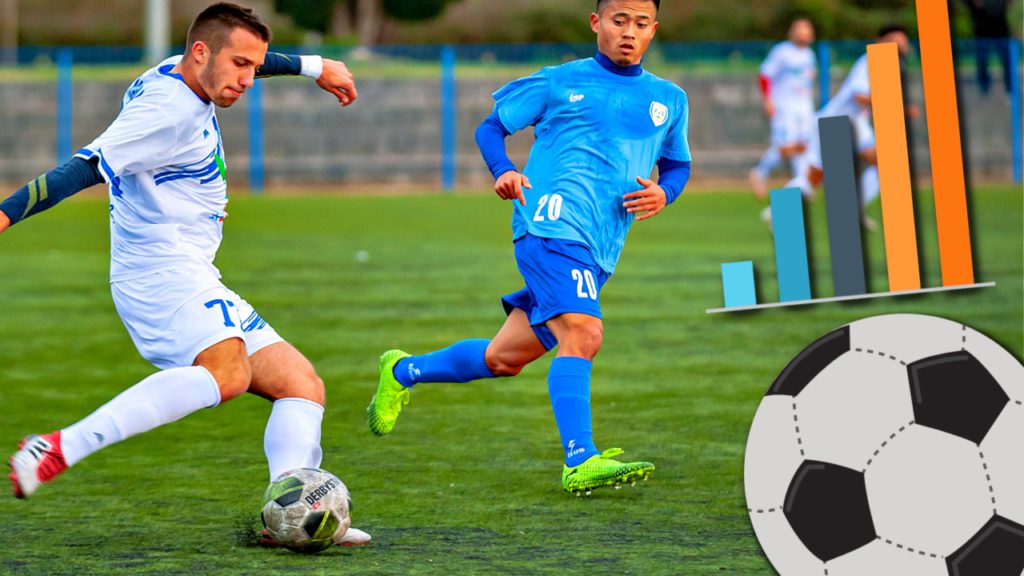
Want to get even more out of these drills? Here are a few pro-level pointers:
- Use a metronome or music with a consistent beat to keep rhythm in drills like foundations or toe taps.
- Record yourself training to spot sloppy touches or unbalanced footwork.
- Train barefoot indoors occasionally to build foot sensitivity (just be cautious with surfaces).
- Do drills at different speeds—slow and controlled, then fast and intense—to simulate game-like pace.
- Challenge your non-dominant foot twice as often. Over time, it’ll close the gap.
Table of Contents
FAQs About Soccer Ball Control and Footwork Drills
Q1: How often should I do these drills?
A: Aim for 4–5 sessions per week, about 20–30 minutes each. Consistency is key.
Q2: Do I need a coach or partner?
A: Not at all. Most of these drills can be done solo, though a partner or coach can help simulate game pressure.
Q3: What age are these drills suitable for?
A: These drills work for all ages—from young beginners to elite players. Just adjust the intensity and pace based on your level.
Q4: Can these drills replace full training sessions?
A: They’re a great supplement, but not a replacement. Use them alongside tactical, technical, and game-based training.
Q5: What should I do if I keep losing control of the ball?
A: Slow it down. Focus on mastering the technique before increasing speed. Control always comes before speed.
Final Thoughts: Stay Consistent, Stay Sharp
Getting good at ball control and footwork doesn’t happen overnight, but the improvement is noticeable—and fast—if you commit. The best players are the ones who can stay composed on the ball, even in high-pressure moments. These 12 drills are here to help you get there.
Start small, master the basics, and keep pushing your comfort zone. As your control improves, your confidence on the pitch will skyrocket—and that’s when the real magic happens.
If you’re serious about leveling up your game, save this list and turn it into part of your regular training routine. Your future self—and your teammates—will thank you.
